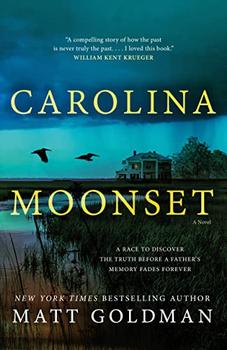Summary | Excerpt | Reviews | Beyond the book | Read-Alikes | Genres & Themes | Author Bio

A Novel
by Laura McHughA haunting novel from the author of The Weight of Blood about a young woman's return to her childhood home—and her encounter with the memories and secrets it holds
Arrowood is the most ornate and grand of the historical houses that line the Mississippi River in southern Iowa. But the house has a mystery it has never revealed: It's where Arden Arrowood's younger twin sisters vanished on her watch twenty years ago—never to be seen again. After the twins' disappearance, Arden's parents divorced and the Arrowoods left the big house that had been in their family for generations. And Arden's own life fell apart: She can't finish her master's thesis; a misguided love affair has ended badly. She has held on to the hope that her sisters are still alive, and it seems she can't move forward until she finds them. When her father dies and she inherits Arrowood, Arden returns to her childhood home determined to discover what really happened to her sisters that traumatic summer.
Arden's return to the town of Keokuk—and the now infamous house that bears her name—is greeted with curiosity. But she is welcomed back by her old neighbor and first love, Ben Ferris, whose family, she slowly learns, knows more about the Arrowoods' secrets and their small, closed community than she ever realized. With the help of a young amateur investigator whose website, Midwest Mysteries, is devoted to solving local cold cases, Arden tracks down the man who was the prime suspect in the kidnapping, though he was never convicted of the crime. But the house and the surrounding town hold their secrets close—and the truth, when Arden finds it, is more devastating than she ever could have imagined.
Arrowood is a powerful and resonant novel that examines the ways in which our lives are shaped by memory. As with her award-winning debut novel, The Weight of Blood, Laura McHugh has written a thrilling novel in which nothing is as it seems, and in which our longing for the past can take hold of the present in insidious and haunting ways.
CHAPTER 1
I used to play a game where I imagined that someone had abandoned me in a strange, unknown place and I had to find my way back home. There were various scenarios, but I was always incapacitated in some way—tied up, mute, missing a limb. I thought that I could do it blind, the same way a lost dog might trek a thousand miles to return to its owner, relying on some mysterious instinct that drew the heart back to where it belonged. Sometimes, in the towns where I'd lived after Keokuk, in a bedroom or classroom or while walking alone down a gravel road, I'd pause and orient myself to Arrowood, the Mississippi River, home. It's there, I'd think, knowing, turning toward it like a needle on a compass.
Now, as I crossed the flat farmland of Kansas and northern Missouri, endless acres of wheat and corn blurring in the dense heat, I felt the road pulling me toward Iowa, as though I would end up there no matter which way I turned the wheel. I squinted into ...
As Arden faces the possibility that her sisters were not taken by the driver of the gold car, she is forced to consider alternative explanations. Several hours of that afternoon seem to be missing from her memory. Where was her father on the afternoon the twins disappeared? Where was her mother? What really happened at Arrowood? The answers to these questions combine to form a thoroughly enjoyable novel of family secrets that explores the ways in which memory and the beliefs we hold dear form our characters...continued
Full Review
 (494 words)
(494 words)
(Reviewed by Kate Braithwaite).
 Jodi Picoult, New York Times bestselling author of The Storyteller and Leaving Time
This robust, old-fashioned gothic mystery has everything you're looking for: a creepy old house, a tenant with a secret history, and even a few ghosts. Laura McHugh's novel sits at the intersection of memory and history, astutely asking whether we carry the past, or whether it carries us.
Jodi Picoult, New York Times bestselling author of The Storyteller and Leaving Time
This robust, old-fashioned gothic mystery has everything you're looking for: a creepy old house, a tenant with a secret history, and even a few ghosts. Laura McHugh's novel sits at the intersection of memory and history, astutely asking whether we carry the past, or whether it carries us.Laura McHugh's atmospheric novel Arrowood is set in Keokuk, in the south-east of Iowa, where the Des Moines River meets the Mississippi. This setting is an important component in establishing the sense of the past overshadowing the present — a major theme in the story. The house, Arrowood, plays a vital role and McHugh's descriptions of real and imagined historic homes in Keokuk, refer to the following styles of architecture:
Second Empire
 Arrowood is described as being built in the Second Empire style that became popular in the 1870s after the Civil War. Second Empire homes are characterized by steep, sloping Mansard roofs, named after the seventeenth-century French architect François Mansard. Arrowood is certainly a house...
Arrowood is described as being built in the Second Empire style that became popular in the 1870s after the Civil War. Second Empire homes are characterized by steep, sloping Mansard roofs, named after the seventeenth-century French architect François Mansard. Arrowood is certainly a house...

If you liked Arrowood, try these:

by Matt Goldman
Published 2022
Both suspenseful and deeply moving, Carolina Moonset is an engrossing novel about family, memories both golden and terrible, and secrets too dangerous to stay hidden forever, from New York Times bestselling and Emmy Award–winning author, Matt Goldman.

by Marina Kemp
Published 2020
In this haunting novel, a young nurse forms an unlikely connection with the elderly man she cares for, and finds herself confronting the guilt she carries from her past.




Too often we enjoy the comfort of opinion without the discomfort of thought.
Click Here to find out who said this, as well as discovering other famous literary quotes!